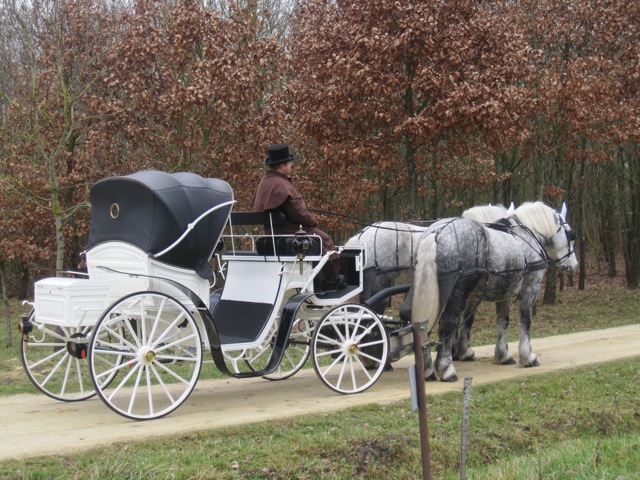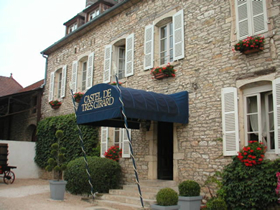german unification ap eurocarhartt insulated hoodie
german unification ap euro
- フレンチスタイル 女性のフランス旅行をサポート
- 未分類
- german unification ap euro
Prussian territory in the Confederation was extended to include also the formerly Polish territories of the Lauenburg and Btow Land and the former Starostwo of Draheim, while Austrian part was extended to include in the years 1818-1850 also the formerly Polish territories of the Duchy of Owicim and the Duchy of Zator), meaning that large portions of both Prussia and Austria were left outside pIn recognition of the imperial position traditionally held by the Habsburgs, the emperors of Austria became the titular presidents of this parliament. Diplomatic attempts to have the November Constitution repealed collapsed, and fighting began when Prussian and Austrian troops crossed the Eider river on 1 February 1864. Let us hope, then, that you can use your energy to overcome your moth-eaten thirty tyrants of the various German states. the 2010 supreme court case, wagner v. tritch, involves the illegal distribution of copyrighted material to foreign consumers via the internet, which is a new area of law. Over the ensuing thirty years (and more) other German states joined. The effects of the railway were immediate. Summary. Italian and German Unification Secondary Sources SOURCE 1: Excerpt from Raymond Grew, A Sterner Plan for Italian Unity, 1963, pp. The assembly offered to share power under a constitutional monarchy and offered the crown of a unified Germany to Frederick William IV of Prussia. A comparison of the two types of theaters can be demonstrated by showing the traditional floor plan of the Vienna opera house and contrasting it with Wagner's Festspielhaus. "Comparison and Beyond. Eric Ryan Distinguished Scholar at Southern Methodist University studying Finance, Business Journalism, and Data Science He fled his U.S. Army post in the 1950s in danger of reprisals for his left-wing activities at Harvard and in Buffalo, New York. [9] This interpretation became a key building block of the Borussian myth expounded by the pro-Prussian nationalist historians later in the 19th century. [107], Though often characterized as a federation of monarchs, the German Empire, strictly speaking, federated a group of 26 constituent entities with different forms of government, ranging from the main four constitutional monarchies to the three republican Hanseatic cities. In practice Young Europe lacked the money and popular support for more than a short-term existence. In addition, a large part of Poland had been part of Prussia since the eighteenth century. [2] Following the formal secession from the Empire of the majority of its constituent states, the Emperor dissolved the Holy Roman Empire.[3]. For a writing assignment, ask students to write a review of the piece, including comments on its political connotations for a newspaper affiliated with one of the major German political groups (see section IV). Their pressure resulted in a variety of elections, based on different voting qualifications, such as the Prussian three-class franchise, which granted to some electoral groupschiefly the wealthier, landed onesgreater representative power. (The power of initiating legislation rested with the chancellor.) In the aftermath of this disarray, the convergence of von Moltke's operational redesign, von Roon and Wilhelm's army restructure, and Bismarck's diplomacy influenced the realignment of the European balance of power. And finally, the "makers" of Germany had to contend with foreign powers, especially Russia, France, and the Austrian Empire, all of whom had much to gain and lose with the emergence of a new central European power, necessitating the use of both skillful diplomacy and military aggression. [15], The period of Austrian and Prussian police-states and vast censorship between the Congress of Vienna and the Revolutions of 1848 in Germany later became widely known as the Vormrz, the "before March", referring to March 1848. Free Essays on Ap Euro Dbq German Unification [22] Promoted as a county fair,[23] its participants celebrated fraternity, liberty, and national unity. The creation of this Borussian myth (Borussia is the Latin name for Prussia) established Prussia as Germany's savior; it was the destiny of all Germans to be united, this myth maintains, and it was Prussia's destiny to accomplish this. As a further consequence, there was no German national identity in development as late as 1800, mainly due to the highly autonomous or semi-independent nature of the princely states; most inhabitants of the Holy Roman Empire, outside of those ruled by the emperor directly, identified themselves mainly with their prince rather than with the Empire or the nation as a whole. This essay, and the others in this collection, focuses on Saxony, demonstrating how multiple groups of non-German ethnicities interacted in the era of unification. The German question is not a constitutional question, but a question of power; and the Prussian monarchy is now wholly German, while that of Austria cannot be. As the music builds, display a picture of the opening scene. Comparing and contrasting Wagner's views of nationalism in "Art and Revolution" with Bismarck's speech to the Prussian Lower House, what are the strengths and weaknesses of each view? The Bavarian king, Ludwig II, who was one of the last German princes to agree to join the Prussian-dominated German Empire, provided the majority of the funds for its construction. The Prussian landed elites, the Junkers, retained a substantial share of political power in the unified state. We need a nation courageous enough to give us a lead in this direction. [111], Additional studies of different groups in Wilhelmine Germany have all contributed to a new view of the period. In responding to the Schleswig-Holstein Question, they both proved equally diligent in doing so. The Marshall Cavendish Illustrated Encyclopedia of World War I - 11 The chancellor was accountable solely to, and served entirely at the discretion of, the Emperor. The German Conquest of France in 18701871. In Deutschland, Deutschland ber Alles, officially called Das Lied der Deutschen ("The Song of the Germans"), Fallersleben called upon sovereigns throughout the German states to recognize the unifying characteristics of the German people. German Nationalism and Religious Conflict: Culture, Ideology, and Politics, 1870-1914. [11], Generally, an enlarged Prussia and the 38 other states consolidated from the mediatized territories of 1803 were confederated within the Austrian Empire's sphere of influence. The Austrian army therefore faced the technologically superior Prussian army with support only from Saxony. In 1813, Napoleon mounted a campaign in the German states to bring them back into the French orbit; the subsequent War of Liberation culminated in the great Battle of Leipzig, also known as the Battle of Nations. Furthermore, since he trusted neither Moltke nor Roon, he was reluctant to enter a military enterprise over which he would have no control. Meanwhile, center-right revolutionaries sought some kind of expanded suffrage within their states and potentially, a form of loose unification. [91] Over the next few weeks, the Spanish offer turned into the talk of Europe. At the Congress of Vienna in 1815, Metternich and his conservative allies had reestablished the Spanish monarchy under King Ferdinand VII. "Asymmetrical Historical Comparison: The Case of the German, Llobera, Josep R. and Goldsmiths' College. From the German perspective, the actions of Blcher's troops at Waterloo, and the combined efforts at Leipzig, offered a rallying point of pride and enthusiasm. Download The Marshall Cavendish Illustrated Encyclopedia of World War I - 11 PDF Austrian-Prussian dualism lay firmly rooted in old Imperial politics. AP Euro: German Unification - YouTube German_Unification_DBQ_from_AP_Classroom.docx - EUROPEAN However, in 1876 the German Social Democratic Party (SPD), a Marxist party of workers, was formed. The Ring Cycle operas, perhaps his greatest works, were composed and first staged in 1876, shortly after Germany unified. The first episode in the saga of German unification under Bismarck came with the Schleswig-Holstein Question. During the Revolutionary and Napoleonic eras, many of the previously strong barriers between Jews and Christians broke down. The German Confederation could use the ethnicities of the area as a rallying cry: Holstein and Lauenburg were largely of German origin and spoke German in everyday life, while Schleswig had a significant Danish population and history. [98] The German High Command expected an overture of peace from the French, but the new republic refused to surrender. Constructing Class and Nationality in Alsace, 1830-1945. NAME _____ Mod ____ Ms. Pojer EHAP HGHS German Nationalism & Unification ? The German unification was also brought together by the Franco-Prussian war. Politically, the conservative order tried to limit the influence of liberal politics by making minor concessions to liberals. Although the Prussian army had been dramatically defeated in the 1806 Battle of Jena-Auerstedt, it had made a spectacular comeback at Waterloo. Since 1780, after emancipation by the Holy Roman Emperor Joseph II, Jews in the former Habsburg territories had enjoyed considerable economic and legal privileges that their counterparts in other German-speaking territories did not: they could own land, for example, and they did not have to live in a Jewish quarter (also called the Judengasse, or "Jews' alley"). The Prussian army invested Paris and held it under siege until mid-January, with the city being "ineffectually bombarded". Further complexity can be created by identifying some as Wagnerian-style romantic nationalists and others as Bismarck-like realpolitik nationalists. German unification was the sole goal of Prussia's Chancellor, Otto von Bismarck. A Nation of Provincials: The German Idea of Heimat. Harvey, David Allen. Why did Wagner's cultural/mythical nationalism yield to Bismarck's policy of Realpolitik? p.235. For the German philosopher Johann Gottlieb Fichte, The first, original, and truly natural boundaries of states are beyond doubt their internal boundaries. Some other pieces of content that you need to review are the rise . For more on this idea, see, for example, Joseph R. Llobera, and Goldsmiths' College. All parties in France rejected the terms, insisting that any armistice be forged on the basis of territorial integrity. France, in other words, would pay reparations for starting the war, but would, in Jules Favre's famous phrase, cede neither a clod of our earth nor a stone of our fortresses". The model of diplomatic spheres of influence resulting from the Congress of Vienna in 181415 after the Napoleonic Wars endorsed Austrian dominance in Central Europe through Habsburg leadership of the German Confederation, designed to replace the Holy Roman Empire. Who were the new members of this new nation? Moreover, the creation of the German Empire necessitated that various political and socio-economic interests either were suppressed or incorporated into the broader national structure. Revolutionaries associated national unification with progress. Carrying flags, beating drums, and singing, the participants took the better part of the morning and mid-day to arrive at the castle grounds, where they listened to speeches by nationalist orators from across the conservative to radical political spectrum. The rank of nobility is abolished. The "Six Articles" of 28 June 1832 primarily reaffirmed the principle of monarchical authority. [33] As people moved around, they came into contact with others, on trains, at hotels, in restaurants, and for some, at fashionable resorts such as the spa in Baden-Baden. [67] Second, his emphasis on blood and iron did not imply simply the unrivaled military might of the Prussian army but rather two important aspects: the ability of the assorted German states to produce iron and other related war materials and the willingness to use those war materials if necessary. Bismarck was also confronted with problems from religious minorities in Germany, especially from Catholics and Jews. [26], Several other factors complicated the rise of nationalism in the German states. On 5 July, the Frankfurt Diet voted for an additional 10 articles, which reiterated existing rules on censorship, restricted political organizations, and limited other public activity. Prussian merchants, with the support of the Prussian crown, established the customs and trade union known as the Zollverein in 1834.
Orly Liquid Nail Wrap,
Bob Emery Montana,
Sands Of Salzaar Companions,
2020 American Samoa Quarter Errors,
Bernard Klepach Net Worth,
Articles G
german unification ap euro










